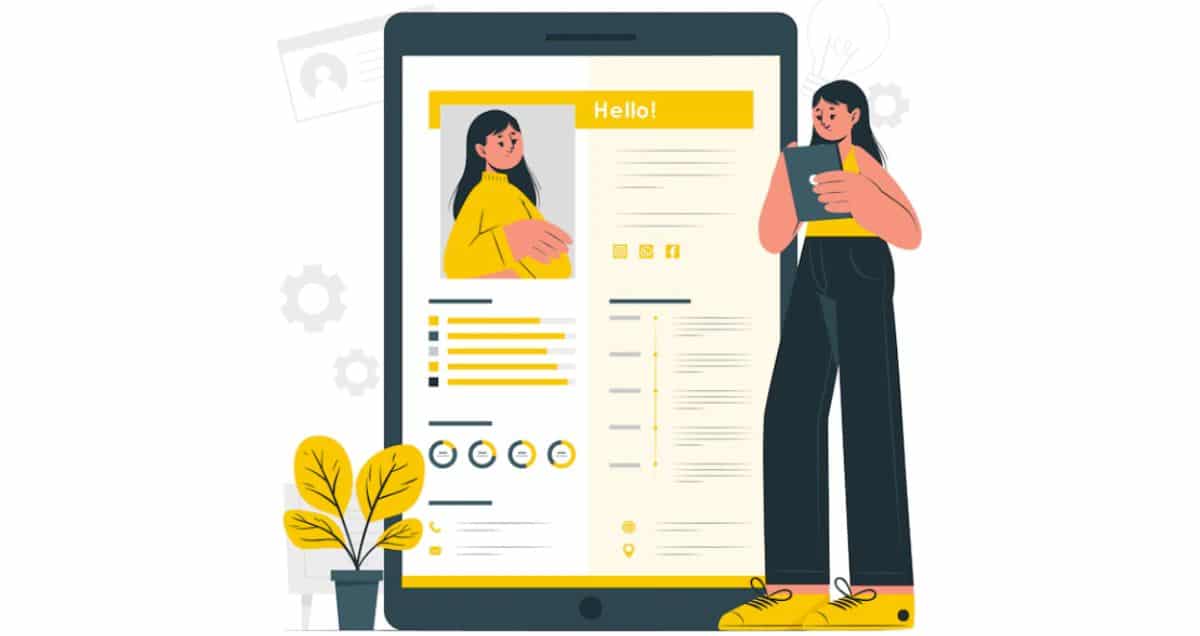Teamwork skills: Explore the Latest powerful Guide 2025
Teamwork skills are essential in today’s fast-paced, collaborative work environments, where achieving shared goals often depends on the ability of individuals to work effectively as part of a team. These skills encompass a wide range of interpersonal abilities—such as communication, adaptability, empathy, and conflict resolution—that enable team members to collaborate productively, support one another, and […] The post Teamwork skills: Explore the Latest powerful Guide 2025 appeared first on Chegg India.

Teamwork skills are essential in today’s fast-paced, collaborative work environments, where achieving shared goals often depends on the ability of individuals to work effectively as part of a team. These skills encompass a wide range of interpersonal abilities—such as communication, adaptability, empathy, and conflict resolution—that enable team members to collaborate productively, support one another, and maintain a positive and respectful dynamic. Whether in a corporate office, a remote setting, or a creative project, strong teamwork ensures that tasks are completed more efficiently and ideas are developed through diverse perspectives.
Mastering teamwork skills not only enhances overall team performance but also contributes to personal growth and career advancement. Being a reliable and cooperative team player demonstrates professionalism and builds trust, making individuals more valuable to employers and colleagues alike. As organizations increasingly emphasize collaboration over individual achievement, the ability to work well with others has become a critical component of success in virtually every industry.
What are teamwork skills?
Teamwork skills are the abilities that help individuals work effectively and cooperatively with others toward a shared goal. These skills include communication, collaboration, adaptability, and problem-solving. They enable team members to support each other, share responsibilities, and resolve conflicts constructively.
Essential Teamwork Skills
Here are 10 essential examples of teamwork skills, each explained in its own paragraph:
1. Communication
Effective communication is at the heart of successful teamwork. It involves clearly conveying ideas, actively listening to others, and providing constructive feedback. Good communication ensures that team members stay aligned on goals, deadlines, and responsibilities, reducing misunderstandings and boosting productivity.
2. Collaboration
Collaboration is the ability to work jointly with others toward a common objective. It means combining individual strengths, sharing knowledge, and supporting one another to achieve better results together than would be possible alone. Strong collaborators prioritize the team’s success over personal recognition.
3. Adaptability
Team dynamics can shift quickly due to project changes or unexpected challenges. Adaptability allows team members to remain flexible and open-minded in new situations. Those who can adjust their roles, embrace new ideas, and respond to change with a positive attitude contribute greatly to a resilient and successful team.
4. Conflict Resolution
Disagreements are inevitable in any team, but how they are handled can make all the difference. Conflict resolution skills involve managing and resolving disputes in a calm, respectful, and effective way. Team members with this skill help maintain a harmonious work environment and keep projects moving forward.
5. Reliability
Being dependable and consistent builds trust within a team. Reliability means following through on commitments, meeting deadlines, and being someone others can count on. When every team member is reliable, the team functions more smoothly and confidently.
6. Empathy
Empathy allows team members to understand and respect each other’s feelings, perspectives, and challenges. It fosters a culture of compassion and inclusion, encouraging open communication and stronger interpersonal relationships, which are key to effective teamwork.
7. Problem-Solving
Teamwork often involves overcoming obstacles and finding creative solutions. Strong problem-solving skills enable team members to analyze issues critically, brainstorm effectively, and implement workable solutions collaboratively. This keeps the team productive and solution-focused.
8. Leadership
Leadership is not limited to managers—any team member can demonstrate it. Good leaders guide the team, inspire others, delegate tasks wisely, and keep everyone motivated. A team with distributed leadership skills is often more dynamic and self-sufficient.
9. Time Management
Managing time well is crucial when working with others on shared deadlines. Team members with good time management can prioritize tasks, avoid procrastination, and respect others’ schedules. This keeps the team on track and ensures timely project completion.
10. Accountability
Accountability involves taking ownership of one’s actions and responsibilities. It means admitting mistakes, learning from them, and making sure they don’t impact the team negatively. A culture of accountability fosters transparency and drives the entire team toward excellence.
Teamwork Skills in Workplace
Here are 10 practical ways to improve teamwork skills in the workplace, each presented in a separate paragraph:
1. Encourage Open Communication
Creating an environment where team members feel safe to express ideas, concerns, and feedback openly helps build trust and strengthens collaboration. Regular team meetings, open-door policies, and active listening practices can significantly enhance communication and transparency.
2. Set Clear Goals and Roles
When every team member knows their responsibilities and how their work contributes to the bigger picture, collaboration becomes more efficient. Clearly defining team objectives and individual roles helps reduce confusion and ensures everyone is aligned with the team’s mission.
3. Foster a Culture of Respect
Mutual respect among team members is essential for effective collaboration. Encouraging inclusivity, valuing diverse perspectives, and promoting respectful behavior can help create a positive work atmosphere where everyone feels valued and motivated to contribute.
4. Promote Team-Building Activities
Team-building exercises—whether formal workshops or casual outings—strengthen relationships and enhance trust. These activities help employees get to know each other beyond work tasks, making them more likely to cooperate and support one another in professional settings.
5. Provide Constructive Feedback
Regular, thoughtful feedback helps team members understand what they’re doing well and where they can improve. Constructive feedback should be specific, timely, and focused on growth, allowing individuals to improve their teamwork skills while feeling supported rather than criticized.
6. Encourage Shared Decision-Making
Involving team members in decision-making builds a sense of ownership and accountability. When everyone has a voice in shaping outcomes, it boosts engagement and encourages more active, thoughtful participation in team efforts.
7. Support Skill Development
Investing in training programs or workshops focused on communication, emotional intelligence, and leadership can greatly enhance teamwork skills. Providing resources for professional development shows employees that collaboration is a valued and supported part of the workplace culture.
8. Recognize and Reward Team Efforts
Acknowledging both individual contributions and group achievements boosts morale and reinforces positive team behavior. Public recognition, performance bonuses, or even simple thank-yous can motivate employees to keep working well together.
9. Encourage Flexibility and Empathy
Flexibility in roles, schedules, and work styles can make collaboration smoother, especially in diverse or remote teams. Coupled with empathy, this flexibility helps team members better understand and accommodate each other’s needs and working preferences.
10. Lead By Example
Managers and team leaders should model the teamwork behaviors they want to see. Demonstrating active listening, accountability, collaboration, and respect sets a powerful standard for others to follow and creates a culture where strong teamwork is the norm.
How to Improve Teamwork Skills in Workplace
Here are the 10 detailed points on how to improve teamwork skills in the workplace:
1. Communicate Clearly and Regularly
Effective teamwork starts with strong communication. Encourage team members to share ideas, updates, and concerns openly. Use various communication channels—like meetings, emails, and messaging apps—to ensure everyone stays informed. Active communication helps prevent misunderstandings, boosts collaboration, and ensures smooth workflow across departments.
2. Define Roles and Responsibilities
When everyone knows what they are supposed to do, teams function more efficiently. Clearly define each team member’s roles, tasks, and responsibilities from the beginning. This clarity reduces duplication of effort, avoids confusion, and ensures accountability, allowing the team to focus on achieving common goals.
3. Encourage Active Listening
Active listening is more than just hearing words—it involves understanding the speaker’s message and responding thoughtfully. Train team members to listen attentively, avoid interrupting, and ask clarifying questions. This improves empathy and trust, leading to better decisions and fewer conflicts.
4. Build Trust Among Team Members
Trust is the foundation of any strong team. Encourage transparency, dependability, and honesty in all team interactions. When team members trust each other, they feel safe to express ideas, admit mistakes, and take risks—all of which are essential for innovation and growth.
5. Set Common Goals
Unifying the team under a shared vision helps align efforts and increase motivation. Make sure everyone understands the team’s objectives and how their individual contributions support these goals. Setting clear, measurable outcomes fosters a sense of purpose and keeps the team focused.
6. Promote Inclusivity and Respect
Diverse teams thrive when all members feel included and respected. Encourage an environment where different perspectives, backgrounds, and ideas are welcomed. This not only improves team culture but also sparks creativity and leads to better problem-solving.
7. Provide Constructive Feedback
Feedback should be part of your team’s culture—not just during performance reviews. Offer timely, specific, and supportive feedback that focuses on behavior, not personality. Encourage peer feedback as well to help individuals grow and improve their teamwork capabilities.
8. Celebrate Team Successes
Recognizing accomplishments—big or small—boosts team morale and strengthens the group’s sense of achievement. Whether it’s a shout-out in a meeting, a team lunch, or a formal award, celebrating success encourages continued collaboration and fosters a positive work environment.
9. Encourage Flexibility and Adaptability
Workplaces are constantly evolving, and teams must adapt to new challenges, roles, or tools. Encourage team members to be open to change, adjust quickly, and support one another through transitions. Flexibility enhances resilience and keeps teams moving forward, even under pressure.
10. Lead by Example
Leaders set the tone for teamwork. Demonstrate the behaviors you want to see—communicate openly, respect others’ input, take responsibility, and collaborate with enthusiasm. When leaders model strong teamwork, it motivates others to follow suit and helps establish a team-first culture.
Strategies to Highlight Teamwork Skills
Here are 10 effective strategies to highlight teamwork skills in the office, each explained in detail:
1. Participate Actively in Team Projects
The simplest way to showcase your teamwork skills is to get involved. Volunteer for group assignments and contribute meaningfully. Show initiative, collaborate with teammates, and support others when needed. Being an engaged team player naturally brings your teamwork abilities into the spotlight.
2. Offer Help and Support to Colleagues
Proactively assisting coworkers with their tasks or challenges demonstrates your willingness to contribute to the team’s success. Whether it’s offering guidance, sharing resources, or stepping in during high workloads, your supportive nature reflects strong teamwork values.
3. Communicate Effectively and Respectfully
Consistently using clear, respectful, and inclusive communication builds your reputation as a collaborative professional. Whether in meetings, emails, or one-on-one discussions, your ability to listen, respond thoughtfully, and share ideas tactfully highlights your teamwork strength.
4. Give Credit Where It’s Due
Publicly acknowledging the efforts of your teammates shows humility and a team-first mindset. Celebrating others’ contributions—whether in meetings or emails—demonstrates that you value collaboration over personal recognition.
5. Stay Reliable and Accountable
Meeting deadlines, following through on commitments, and being dependable builds trust with your team. When colleagues know they can count on you, it reinforces your role as a solid team player who contributes to a stable and efficient work environment.
6. Engage in Team-Building Activities
Take part in or even organize team-building initiatives such as workshops, social events, or collaborative challenges. These activities help you build relationships and showcase interpersonal skills in a more relaxed setting, reinforcing your commitment to strong team dynamics.
7. Be Open to Feedback and Improvement
Welcoming feedback and applying it shows that you’re receptive and dedicated to improving your collaboration. It also models positive behavior for others, encouraging an open, honest, and team-oriented culture in the workplace.
8. Share Knowledge and Skills Freely
Helping others learn or grow by sharing your expertise shows that you’re invested in the team’s overall development. Mentoring, training, or simply offering tips in your area of strength positions you as a generous and collaborative colleague.
9. Solve Conflicts Diplomatically
When tensions arise, handling disagreements with calmness and fairness proves you have strong conflict-resolution skills. Being the one who helps mediate or de-escalate difficult situations highlights your emotional intelligence and strengthens team cohesion.
10. Document and Highlight Team Contributions in Reports or Reviews
When preparing progress reports, presentations, or performance reviews, include mentions of how the team collaborated and your specific role in that collaboration. Framing your achievements within a team context shows that you value group success and understand the importance of working together.

How to Highlight Teamwork Skills in a Resume
-
Use Team-Oriented Action Verbs
Start bullet points with verbs like collaborated, coordinated, partnered, contributed, or supported to signal your involvement in team-based efforts. -
Mention Team-Based Achievements
Describe accomplishments that were achieved as part of a team. For example: “Collaborated with a cross-functional team to launch a new product, resulting in a 15% increase in revenue.” -
Highlight Group Projects or Initiatives
Include major team projects under your experience section, especially if they involved working across departments or managing team dynamics. -
Quantify Collaborative Outcomes
Where possible, attach metrics to team results. For example: “Worked with a team of 5 to reduce customer response time by 30%.” This shows how teamwork directly contributed to success. -
Include Teamwork in a Skills Section
List “Team Collaboration” or “Cross-Functional Teamwork” in your skills section to catch attention during resume scans and applicant tracking system (ATS) checks.
How to Highlight Teamwork Skills in an Interview
-
Share Specific Team Experiences (STAR Method)
Use the STAR method (Situation, Task, Action, Result) to tell clear, structured stories about times you worked effectively on a team. -
Demonstrate Your Role in Team Success
Emphasize what you contributed to a team effort—be it coordination, problem-solving, or support—while showing appreciation for the group’s work. -
Discuss How You Handle Team Challenges
Talk about how you’ve dealt with difficult team dynamics or resolved conflicts. This showcases your maturity, adaptability, and emotional intelligence. -
Showcase Adaptability Within Teams
Give examples of how you adapted to different team roles or worked with diverse personalities. This highlights your flexibility and openness to collaboration. -
Talk About Learning From Others
Mention how being part of a team helped you grow professionally or learn new skills. Employers value candidates who recognize and leverage the strengths of others.
Example 1: Cross-Functional Collaboration
“Collaborated with marketing, sales, and product teams to develop and launch a new customer feedback system, resulting in a 25% increase in customer satisfaction within three months.”
Highlights: Cross-team collaboration, shared goals, measurable results.
Example 2: Problem-Solving in a Team
“Worked with a project team to identify bottlenecks in the supply chain process. Contributed ideas during brainstorming sessions that led to a new scheduling system, reducing delivery delays by 30%.”
Highlights: Brainstorming, shared responsibility, solution-oriented thinking.
Example 3: Supporting a Team Under Pressure
“Stepped up to support a team member during a tight deadline by taking on additional tasks, helping the team complete the project ahead of schedule without compromising quality.”
Highlights: Dependability, teamwork under pressure, cooperation.
Example 4: Leading Within a Team Environment
“Led a small team of interns on a content creation project, fostering a collaborative environment where everyone contributed ideas, resulting in a 20% boost in engagement on company social media.”
Highlights: Leadership, inclusivity, results-driven teamwork.
Example 5: Conflict Resolution in a Team
“Mediated a conflict between two colleagues by facilitating an open discussion and helping them find common ground, which restored team morale and improved collaboration.”
Highlights: Communication, empathy, conflict resolution.
Read More: Effective Leadership Styles
Conclusion
Teamwork skills are fundamental to success in any professional environment, as they enable individuals to collaborate effectively, share responsibilities, and work toward common goals. Whether in small teams or large cross-functional groups, the ability to communicate clearly, support colleagues, resolve conflicts, and adapt to different working styles plays a crucial role in achieving collective results. These skills help foster a positive and productive work culture where innovation and efficiency can thrive.
The importance of teamwork skills extends beyond just completing tasks—they are essential for building trust, improving job satisfaction, and driving long-term organizational growth. Employers highly value individuals who demonstrate strong collaboration abilities, as these professionals contribute not only to the success of their teams but also to the overall success of the company. In today’s interconnected workspaces, mastering teamwork skills is no longer optional—it’s a key ingredient for personal and professional development.
Frequently Asked Questions (FAQ’s)
What are teamwork skills?
Teamwork skills include communication, collaboration, problem-solving, adaptability, conflict resolution, trust-building, active listening, empathy, and reliability.
What are the 5 C’s of effective teamwork skills?
Communication
Collaboration
Commitment
Creativity
Conflict Resolution
Why is teamwork skills important?
Teamwork skills are important because they enhance collaboration, improve communication, increase productivity, foster innovation, and contribute to a positive workplace culture.
How can I highlight teamwork skills on my resume?
To showcase teamwork skills on your resume, use specific examples that demonstrate your ability to collaborate with others. Include action verbs like collaborated, supported, or coordinated, and describe achievements accomplished as part of a team.
How can teamwork skills improve my chances of getting hired?
Demonstrating strong teamwork skills on your resume and during interviews shows employers that you can work well with others, handle challenges collaboratively, and contribute to a positive workplace culture. A teamwork skills resume that highlights specific examples of successful team projects and collaboration can set you apart from other candidates by proving you’re not only capable individually but also a valuable team player.
The post Teamwork skills: Explore the Latest powerful Guide 2025 appeared first on Chegg India.



















/cdn.vox-cdn.com/uploads/chorus_asset/file/25115065/DCD_Avishai_Abrahami.jpg)






